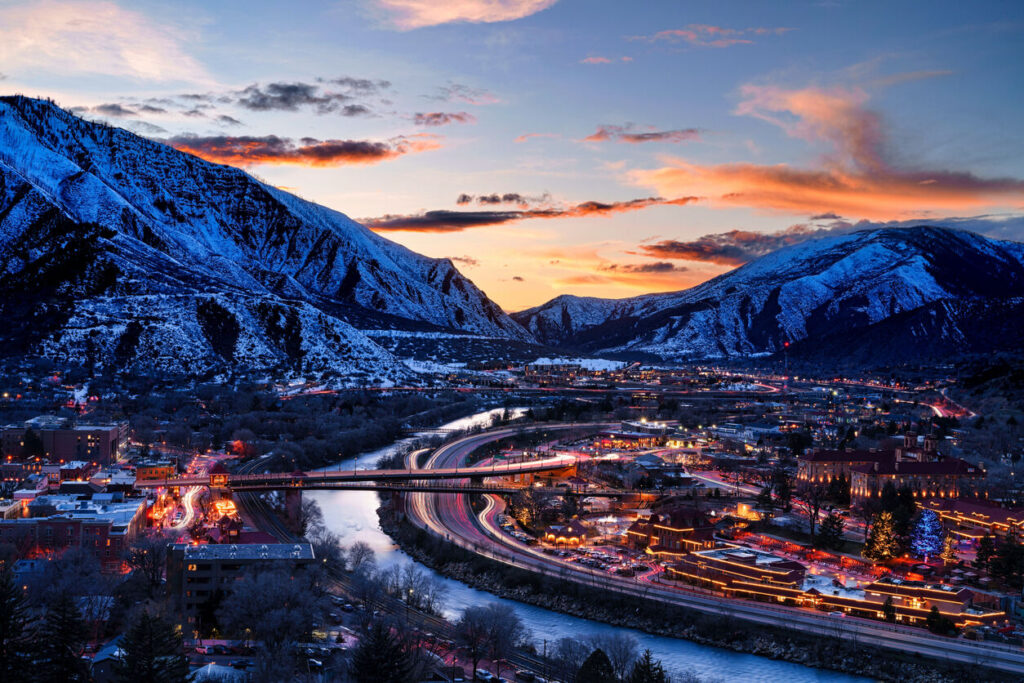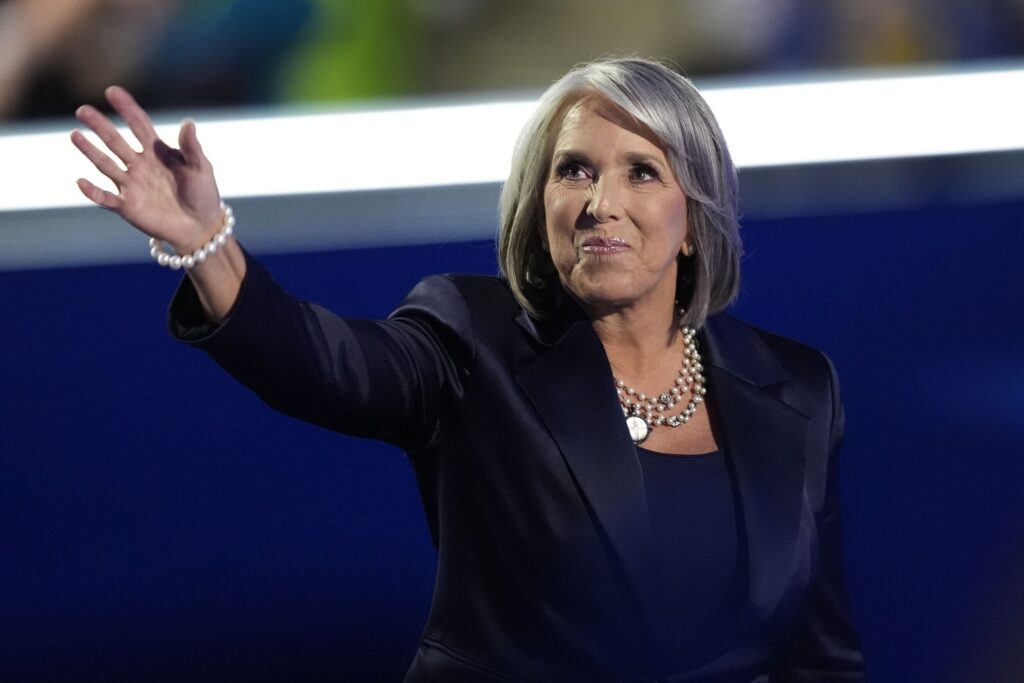Nebraska ballot includes competing measures to expand, limit abortion rights | OUT WEST ROUNDUP
NEBRASKA
Court allows competing abortion measures on ballot
The Nebraska Supreme Court ruled on Sept. 13 that competing measures that would expand or limit abortion rights can appear on the November ballot.
The high court’s ruling came days after it heard arguments in three lawsuits that sought to keep one or both of the competing abortion initiatives off the November ballot.
An organizer for the measure to expand abortion rights, Protect Our Rights campaign manager Allie Berry, called the decision a “victory for all Nebraskans.”
Matt Heffron, an attorney with the conservative Thomas More Society, which challenged the measure to expand abortion rights, called the court’s ruling “deeply concerning” and said the group fears that if the measure passes, it would lead to unnecessary abortions in the second and third trimesters of pregnancy.
Colorado's 14 ballot measures include abortion, hunting, ranked choice voting
One initiative would enshrine in the Nebraska Constitution the right to have an abortion until viability, or later to protect the health of the pregnant woman. The other would enshrine in the constitution Nebraska’s current 12-week abortion ban, passed by the Legislature in 2023, which includes exceptions for rape, incest and the life of the pregnant woman.
Nebraska will be the first state to carry competing abortion amendments on the same ballot since the U.S. Supreme Court overturned Roe v. Wade in 2022, effectively ending 50 years of national abortion rights and making abortion a state-by-state issue..
In Nebraska, voters could end up approving both competing abortion ballot measures. But because they’re competing and therefore cannot both be enshrined in the constitution, the one that gets the most “for” votes would be the one adopted, the secretary of state’s office has said.
ARIZONA
1864 abortion ban officially off the books
PHOENIX — Arizona’s Civil War-era ban on nearly all abortions officially was repealed on Sept. 14.
The western swing state has been whipsawed over recent months, starting with the Arizona Supreme Court deciding in April to let the state enforce the long-dormant 1864 law that criminalized all abortions except when a woman’s life was jeopardized. Then state lawmakers voted on a bill to repeal that law once and for all.
Democratic Arizona Gov. Katie Hobbs signed the bill in May, declaring it was just the beginning of a fight to protect reproductive health care in Arizona.
It will be up to Arizona voters to decide whether to adopt a ballot measure in November to enshrine the right to abortion in the state constitution.
By 2-1, 10th Circuit rejects request to block Colorado's conversion therapy ban
After the state Supreme Court cleared the way for enforcement, Hobbs urged the state legislature to take imminent action to undo the ban before it went into effect. Republican lawmakers, who hold a narrow majority in both chambers, derailed discussions about repealing the ban, but House Democrats were able to garner the support of three Republicans to pass the repeal legislation, sending the measure to the Senate for consideration. Two GOP senators joined with Democrats to grant final approval.
In the weeks between the high court’s decision and Hobbs signing the repeal into law, Arizonans were in a state of confusion about whether the near-total ban would end up taking effect before the repeal was implemented.
With the territorial ban no longer in play, Arizona law allows abortions until 15 weeks. After that, there is an exception to save the life of the mother, but missing are exceptions for cases of rape or incest.
Judge blocks lithium drilling opposed by tribe
A federal judge has temporarily blocked exploratory drilling for a lithium project in Arizona that tribal leaders say will harm land they have used for religious and cultural ceremonies for centuries.
Lawyers for the national environmental group Earthjustice and Colorado-based Western Mining Action Project are suing federal land managers on behalf of the Hualapai Tribe. They accuse the U.S. Bureau of Land Management of illegally approving drilling planned by an Australian mining company in the Big Sandy River Basin in northwestern Arizona, about halfway between Phoenix and Las Vegas.
U.S. District Judge Diane Humetewa granted a temporary restraining order on Aug. 21 and planned to hear initial arguments for an injunction on Sept. 17.
The tribe wants the judge to issue a preliminary injunction extending the prohibition on activity at the site pending trial on allegations that federal approval of the exploratory drilling violated the National Historic Preservation Act and National Environmental Policy Act.
Gov. Jared Polis signs bills on renewable energy, mental health professional requirements
Arizona Lithium plans a total of 131 drilling sites across nearly a square mile to obtain samples to help determine if there’s enough lithium to construct a mine and extract the critical mineral needed to manufacture batteries for electric vehicles, among other things.
Justice Department lawyers representing the bureau said in court filings that the tribe is exaggerating potential harm that could come solely from exploratory drilling.
According to the lawsuit, there is archaeological evidence of the tribe’s presence there dating to 600 A.D.
UTAH
Mormon’s oldest-ever president turns 100
SALT LAKE CITY — Leaders of worldwide religions commonly stay at the helm well past retirement age, but it’s not often you find centenarians overseeing major faiths.
That’s what The Church of Jesus Christ of Latter-day Saints has as of Sept. 9, when church president Russell M. Nelson turned 100. He had already become the oldest president ever of the Utah-based faith three years ago and now becomes its first to hit the century mark.
On Nelson’s 100th birthday, the church commemorated the occasion with a special broadcast in his honor. Also, Utah Gov. Spencer Cox, a Republican and church member, declared Sept. 9 to be “President Russell M. Nelson Day” in the state.
The president of the denomination, known widely as the Mormon church, oversees everything from the its multibillion-dollar financial holdings to church doctrine and policy. He also is believed to be a prophet of God and serves until death.
Abortion: A great religious divide that also unites faithful opponents and supporters
By tradition, the new president is chosen from among the Quorum of The Twelve Apostles, one of the faith’s top governing bodies — specifically its longest tenured member. Selected to join the Quorum in 1984, Nelson has spent four decades in the upper echelons of church leadership.
In 2018, he became the church’s 17th president at 93, making him the second oldest at the time to ever assume the role.
Born in Salt Lake City in 1924, Nelson joined the religion as a young adult.











